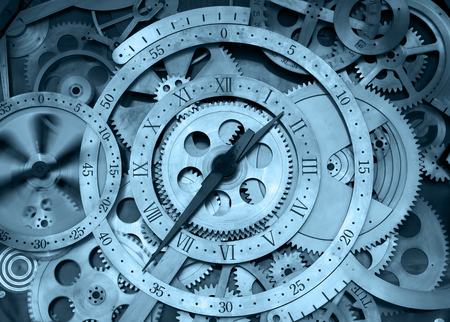Introduction to British Horoscope Columns
Horoscope columns have been a cherished feature of British newspapers and magazines for decades, weaving themselves into the fabric of everyday life. Whether found in the pages of traditional broadsheets or popular tabloids, these astrological forecasts are more than just entertainment—they reflect the nation’s enduring fascination with fate, personality, and self-discovery. In the UK, reading your daily or weekly star sign has become a ritual for many, offering both comfort and a sense of guidance amidst life’s uncertainties. The popularity of horoscope columns speaks to a uniquely British blend of curiosity and scepticism; while some approach them light-heartedly, others find genuine solace or inspiration in their words. This tradition has given rise to iconic British horoscope columnists whose voices have shaped not only personal routines but also collective cultural conversations about destiny, identity, and well-being. As we explore their influence, it becomes clear that horoscope columns are much more than just a quirky pastime—they are an integral part of Britain’s cultural landscape.
2. Pioneering Figures: Iconic British Horoscope Columnists
When it comes to the world of astrology in the UK, a handful of pioneering horoscope columnists have become household names, their influence stretching far beyond the pages of newspapers and magazines. These individuals not only brought astrology into the mainstream but also helped shape public attitudes toward the mystical art, blending entertainment with genuine guidance for millions. Let’s take a closer look at some of these iconic figures and their unique contributions.
Russell Grant: The Peoples Astrologer
Russell Grant is perhaps one of the most recognisable faces in British astrology. With his warm, approachable style and regular appearances on television and radio, he made star sign readings accessible to everyone. His columns in national newspapers offered both light-hearted predictions and moments of sincere encouragement, creating a sense of connection for readers seeking insight into their daily lives.
Mystic Meg: The Queen of Predictions
Mystic Meg became a cultural phenomenon in the 1990s as the resident astrologer for The Sun. Her distinctive persona—complete with crystal ball and dramatic flair—captivated audiences every week. Mystic Meg’s horoscopes were more than just entertainment; they often served as talking points in offices, pubs, and homes across the country, reflecting her significant role in making astrology part of Britain’s shared pop culture.
Comparing Their Contributions
| Columnist | Publication/Platform | Style & Approach | Cultural Impact |
|---|---|---|---|
| Russell Grant | Daily Mail, TV & Radio | Warm, inclusive, personal | Brought astrology to mainstream media; made horoscopes accessible for all ages |
| Mystic Meg | The Sun | Mysterious, theatrical, direct | Became a pop culture icon; sparked national conversations around horoscopes |
| Jonathan Cainer | The Daily Mail, The Mirror | Insightful, philosophical, detailed | Encouraged deeper reflection; trusted source for thoughtful astrological guidance |
| Patsy Bennett & Others | Various Magazines & Online Platforms | Modern, practical, encouraging | Brought astrology to new generations through digital channels and contemporary language |
Their Lasting Legacy in British Culture
The enduring appeal of these columnists lies not just in their predictions but in their ability to offer comfort and perspective during uncertain times. They turned horoscope reading into a uniquely British ritual—a blend of hopefulness and humour that still resonates today. By weaving astrology into everyday conversation and popular media, these pioneers have left an indelible mark on British cultural life.
![]()
3. Horoscopes in Popular Media and Daily Life
In the UK, horoscopes have woven themselves into the very fabric of everyday culture, largely thanks to the enduring presence of iconic British horoscope columnists. Their columns are a familiar sight in almost every major newspaper, magazine, and now, across digital platforms. Whether you pick up a copy of The Sun on your morning commute or scroll through online lifestyle sections with your afternoon tea, horoscopes are there—offering guidance, humour, and sometimes a gentle nudge towards self-reflection.
This accessibility has made horoscopes an integral part of many Britons’ daily routines. For some, checking their star sign’s prediction is as habitual as reading the headlines or checking the weather. It’s not just about seeking cosmic predictions; it’s also about finding reassurance and a sense of connection. Many readers admit to using horoscope advice when making decisions—whether it’s choosing a day to ask for a promotion, arranging a date night, or simply deciding to be more mindful.
The influence of horoscopes extends beyond individual readers. In workplaces, friends might compare their daily forecasts over lunch, sparking conversations that blend personal reflection with light-hearted banter. Television shows and radio stations often feature astrologers who offer live readings or discuss astrological trends shaping the collective mood. Even popular British expressions such as “Mercury must be in retrograde” have entered everyday language, reflecting how astrological concepts permeate social interactions.
In this way, iconic British horoscope columnists do more than predict lucky numbers or romantic prospects; they shape cultural attitudes towards fate, self-improvement, and community. By integrating astrology into popular media and daily life, they’ve turned what was once considered fringe mysticism into a mainstream ritual that helps people navigate both uncertainties and opportunities with a uniquely British blend of scepticism and hope.
Cultural Impact and Influence on British Society
Horoscope columns have woven themselves into the very fabric of British culture, influencing attitudes, shaping personal identity, and becoming a familiar part of daily life. The nation’s iconic horoscope columnists didn’t just predict the future; they offered reassurance, subtle guidance, and a mirror for self-reflection. Let’s explore the multifaceted ways these columns have left their mark on British society.
Astrology in Everyday Conversation
In Britain, astrology has become more than just a mystical pursuit—it’s a shared cultural shorthand. Colleagues might discuss Mercury retrograde over tea, or friends may bond by comparing star signs at the pub. These light-hearted exchanges help people connect and make sense of their experiences, even if just for fun. Iconic columnists like Mystic Meg and Russell Grant popularised phrases such as “What’s your star sign?” or “Typical Virgo behaviour,” integrating astrological language seamlessly into daily conversation.
Shaping Personal Identity and Self-Reflection
For many Britons, reading their daily or weekly horoscopes is a small ritual of self-discovery. Horoscope columns encourage readers to reflect on their strengths, challenges, and emotional responses. This gentle nudge towards introspection allows individuals to see themselves through a different lens, sometimes finding comfort or motivation in the process. The regularity of horoscope readings can support personal growth and provide a framework for understanding life’s ups and downs.
Integration into British Culture: A Comparative Glance
| Aspect | Traditional Influence | Modern Integration |
|---|---|---|
| Attitudes Towards Astrology | Scepticism mixed with curiosity; seen as light entertainment | Greater acceptance; used as an icebreaker or coping tool |
| Personal Identity | Star sign as fun trivia | Star sign as part of self-concept; shared in social profiles |
| Self-Reflection | Occasional introspection prompted by readings | Routine use for emotional check-ins and decision-making |
| Cultural Conversation | Mentioned in newspapers and magazines | Pervasive in social media, podcasts, and everyday chat |
The Lasting Legacy of Horoscope Columns
The enduring popularity of horoscope columns highlights their unique ability to offer both entertainment and emotional support. They have helped normalise the search for meaning and connection during uncertain times. Whether guiding readers through heartbreak or inspiring hope at the start of a new year, iconic British horoscope columnists have fostered a tradition that continues to shape how Britons view themselves and engage with one another.
5. Criticisms and Controversies
While iconic British horoscope columnists have enjoyed immense popularity, their work has not been without scrutiny. In the UK, a nation renowned for its scepticism and dry wit, horoscopes have long been met with a mixture of fascination and doubt.
Scepticism Towards Astrological Credibility
Many critics argue that horoscope columns lack scientific foundation. British commentators, particularly within the academic and journalistic communities, have frequently dismissed astrology as pseudoscience. The phrase “take it with a pinch of salt” is often applied when referring to daily horoscopes in mainstream media. This scepticism is reflective of a broader cultural tendency in the UK to question claims lacking empirical evidence.
Debates on Social Influence
Another controversy surrounds the societal effects of regular horoscope consumption. Detractors claim that such columns may encourage magical thinking or lead individuals to make life decisions based on vague predictions rather than rational judgement. Some mental health professionals in Britain have voiced concerns that reliance on astrological advice could undermine personal agency, especially for those experiencing emotional distress.
Media Responsibility and Ethical Considerations
The debate extends to the responsibility of newspapers and magazines in publishing horoscopes. With the British press holding significant influence, questions arise regarding whether promoting astrology supports critical thinking or simply perpetuates comforting myths. High-profile debates within media circles occasionally spark public conversations about editorial standards and ethical boundaries.
Cultural Persistence Despite Critique
Despite ongoing criticisms, horoscope columns remain a beloved feature in many British publications. Their enduring presence speaks to a cultural openness to light-hearted escapism and personal reflection—even in a society often described as reserved or rational. The tension between scepticism and enjoyment continues to shape the unique place of astrology in British popular culture.
6. The Legacy and Modern Evolution of British Horoscope Columns
As we reflect on the longstanding influence of iconic British horoscope columnists, it is clear that their legacy continues to shape the nation’s fascination with astrology. However, the landscape has shifted dramatically in recent years as these columns have moved beyond the traditional print media and embraced the possibilities of digital platforms.
The Shift from Print to Digital
Historically, horoscopes were a staple of national newspapers and glossy magazines, providing daily guidance and entertainment for millions. As readership habits changed and physical circulation declined, leading astrologers were quick to adapt. Today, the most respected British horoscope writers reach audiences through dedicated websites, interactive apps, and subscription-based newsletters. This transition has not only broadened their reach but also enabled more personalised content tailored to individual readers’ birth charts.
The Influence of Social Media
Social media has been transformative for British astrology writers. Platforms like Instagram, Twitter (now X), and TikTok offer astrologers immediate access to diverse audiences—particularly younger generations seeking both community and insight. Through relatable memes, live Q&A sessions, and bite-sized daily readings, today’s columnists foster a sense of connection and engagement that print alone could never achieve. Hashtags such as #AstroTwitter or #HoroscopeUK have become virtual spaces where astrological discussions thrive, allowing both established voices and emerging talents to share their perspectives.
Challenges and Opportunities in the Digital Age
The digital realm brings its own set of challenges. With more voices than ever entering the conversation, established British astrologers must continually evolve their content to stand out amidst a crowded field. At the same time, digital tools provide opportunities for deeper exploration—such as interactive birth chart calculators or multimedia content that blends written word with video or audio interpretations.
The Future for British Astrology Writers
Looking ahead, it seems likely that British horoscope columns will continue to blend tradition with innovation. As artificial intelligence and data analytics become more sophisticated, astrologers may find new ways to personalise predictions or engage users in real time. Yet at its core, the enduring appeal of British astrology lies in its unique ability to offer reassurance, self-reflection, and a touch of magic in everyday life—a cultural impact that will remain regardless of format. For modern readers navigating an uncertain world, these evolving columns promise not just guidance but also a sense of belonging within Britain’s rich astrological heritage.


